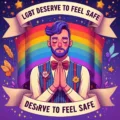The Power of Love Conquers All
Love takes many beautiful forms. For members of the LGBTQ+ community, finding love that is accepted and able to flourish openly has involved much struggle and resilience over the years. Yet there is power in love – no matter its form – to inspire hope and change.
Trailblazers Lead the Way
While acceptance for LGBTQ+ relationships still has progress to make, role models have emerged who give hope for the future. Groundbreakers like tennis legend Billie Jean King have shown that love is love, no matter what obstacles society may put in its way.
Focusing on Shared Humanity
Debates over LGBTQ+ rights often turn divisive. But if we focus on our shared humanity – that all people desire to love and be loved – we can find common ground. Love is a universal language that can overcome differences.
The Struggle Continues
Securing equal rights for LGBTQ+ individuals to marry whom they love has been difficult, with progress going back and forth. The struggle continues worldwide. But by coming together through compassion and good faith, step by step, increased acceptance can be achieved.
FAQ
What are some examples of influential LGBTQ+ couples?
Some examples include tennis player Billie Jean King and her partner Ilana Kloss, entertainers Ellen DeGeneres and Portia de Rossi, artist Frida Kahlo and photographer Tina Modotti, and poets Sylvia Plath and Ted Hughes.
What recent movies feature LGBTQ+ relationships?
Recent movies featuring LGBTQ+ storylines and relationships include “Love, Simon”, “Call Me By Your Name”, “Moonlight”, “Carol”, and “Brokeback Mountain”.
What LGBTQ+ rights struggles continue today?
Ongoing LGBTQ+ rights struggles include efforts to combat discrimination and violence against transgender individuals, securing workplace protections for LGBTQ persons, banning conversion therapy practices, and achieving further progress in decriminalization globally.
What cultural factors affect LGBTQ+ acceptance?
Cultural factors that impact societal acceptance of LGBTQ+ identities and relationships include religious beliefs, traditional gender norms, levels of diversity exposure, generational differences, and civil rights progress within a region or nation.
How can I support LGBTQ+ friends and family?
You can support LGBTQ+ friends and family by providing an open, non-judgmental space for them to be themselves, standing up against discriminatory remarks and acts within your sphere of influence, attending LGBTQ+ community events as an ally, and staying educate on the issues this community faces.









